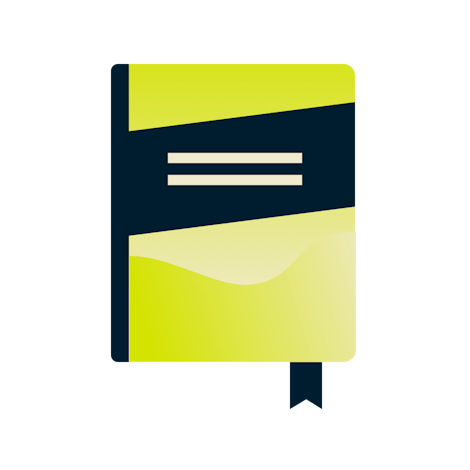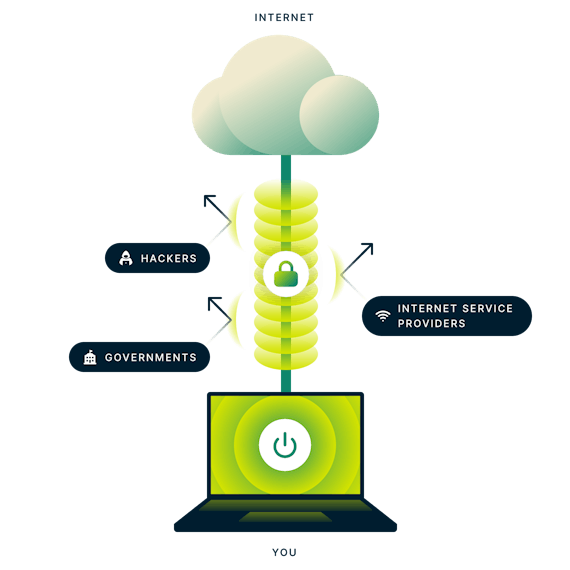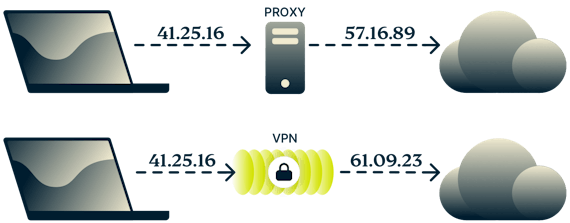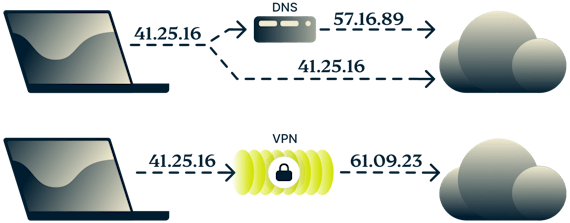VPN for dummies: A tutorial for beginners
Learn more about VPN.
30-day money-back guarantee

Definition of VPN
VPN stands for virtual private network. It is an encrypted tunnel between two devices that lets you access every website and online service privately and securely.
How does VPN tunneling work?
VPN tunneling creates a point-to-point connection between two devices, often the VPN server and your device. Tunneling encapsulates your data into standard TCP/IP packets and safely transfers it across the internet. Because the data is encrypted, hackers, governments, and even internet service providers cannot see or gain control of your information while you are connected to a VPN server.

Why do I need a VPN?
From enhanced security to saving money, there are many benefits that come from using a VPN. Check out these five amazing things a VPN can do for you and learn how VPNs work.
How is a VPN different from a proxy?
When you connect to a proxy server, it becomes an intermediary between your device and the internet. All of your internet traffic gets rerouted through the proxy server, making it appear to have come from the proxy server’s IP address.

Connecting to a proxy server masks your IP address and allows you to access censored content. However, proxy servers do not encrypt your traffic, so any information that you exchange over the connection can be intercepted by others who are also connected to the server, such as hackers or identity thieves.
A VPN offers all the benefits of a proxy server but also secures and encrypts the data between your device and the internet, allowing you to go online without fear of having your information intercepted or stolen.
Read more about using a VPN vs a proxy for watching online streaming video.
How is a VPN different from DNS?
In addition to its main VPN service, ExpressVPN also provides a way to change your DNS settings such that only certain content goes through its servers, leaving the rest of your network traffic to be handled by your regular ISP.

However, like a proxy server, this DNS service does not include secure tunneling for your network traffic, which makes it slightly faster but leaves it prone to third-party interference. Additionally, changing your DNS settings does not hide your IP address, since not all of your traffic is rerouted through the DNS server. If you want to remain anonymous and protect the information you exchange online, you need a VPN.
How is a VPN different from a firewall?
A firewall is a barrier that analyzes data packets from the internet that try to connect to your computer and only allows those that meet a predetermined set of rules to get through.

Using a firewall is a great way to protect your device from threats such as virus attacks and worms. However, a firewall can only protect your device from dangerous incoming traffic. To secure and protect the network traffic leaving your device, you need a VPN. A firewall does offer complementary benefits to a VPN, however, and using the two together provides optimal online security.

What is the difference between a VPN app, a VPN plugin, and a VPN browser?
VPN browsers or browser plugins only protect your web browser traffic. The rest of the network traffic from your device is still exposed to internet service providers and potential hackers. A VPN app will encrypt and protect all network traffic from your device.

The ExpressVPN browser extension for Chrome, Firefox, and Edge is different. It works in partnership with the ExpressVPN app to protect your entire device.
Read more about why you should use a VPN app instead of a standalone VPN plugin or VPN browser.
Where can I get a VPN?
Learn more about using a VPN

Unblock websites
Access your favorite web services and defeat censorship
Security and privacy
Get the best VPN for dummies
If you’re not 100% satisfied with the ease and convenience of using ExpressVPN, contact Support within 30 days and get a full refund, no questions asked.



